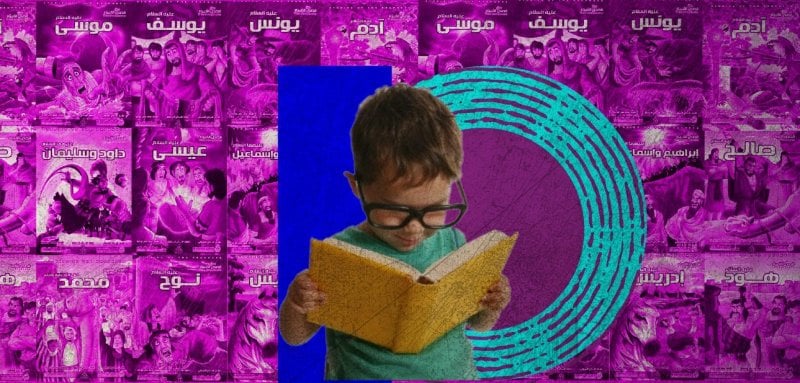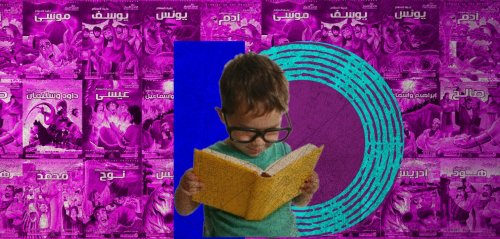I will never forget the disappointed face of my seven year old girl when I offered her a gift without revealing its content. I just said: “It’s a surprise!”
A first shock
She approached the elegant ribbon-wrapped box, and was shocked when she opened it. I do not know if it was my shock, hers, or a mutual shock: “Mom! You got me books! School is over. Am I supposed to study during summer break?”
The colorful book cover did not seduce my little energetic girl. In fact, she had considered it my new way to trick her into studying during the summer vacation. We embarked in a long discussion after which she was convinced to read the books provided that I accompany her in that journey.
However, I have asked myself: “Am I a traditional mother who tries to get her child into reading so that I boast about how educated she is, before my neighbors and relatives?”
I have really wondered why my child should get used to reading and take the same path I had chosen, without any pressure, when I was her age. I remembered how passionate I was about reading any piece of writing I would stumble upon.
I have probably tricked myself by justifying the fact that I wanted her to read by being a simple way to enrich her vocabulary and language. I have convinced myself that it will help her in school and facilitate the education process. Thus, I have engaged with her in that journey, from which I came back astonished.
A second shock
I had spent good money on five books published by a well-known Syrian publishing house. I could have spent such amount on some needed household necessities during the hard life conditions we are currently living in. However, I have chosen culture instead, or so I thought.
The educational and sexist mistakes I discovered in the books that I read to my daughter were shocking. Children’s books are terribly devoted to stereotyping women. They portray women as princesses awaiting their charming princes, women in their aprons waiting for their husbands or ones that have sent their sons to play, while their little daughters help them do household chores.
The educational and sexist mistakes I discovered in the books I read to my daughter were shocking. Children’s books are terribly devoted to stereotyping women: princesses awaiting their charming princes
I closed that book before finishing the story. I claimed to my daughter that I have something important to do, apologized to her, and promised to continue reading later on. She did not care at all and was actually happy that I did so.
The compulsion of reading
I have decided to monitor the content of these storybooks before reading them with my daughter again. What I read was scary. Even the books that involve stories about competitions between students from the same school were more likely to promote jealousy and envy.
I have stopped there and remembered “The Five Adventurers” and all the other stories that I have read in my childhood. I do not know if these stories contain any standardization or deep sexism, but I am aware that I was not affected negatively. On the contrary, today, I enjoy reading details such as “The True Story of Little Red Riding Hood” and the fact that the wolf was a victim. Monotony and coherence do not teach. Contradiction does, and even the most diplomatic and monotone people can be evil.
In the end of our reading experience, my daughter won. I decided to stop searching for children’s books with decent educational content and acquiesced to her desire to do sports, swimming, and other activities that she loves.
The stories of prophets
Samar, a 38-year-old university graduate, describes herself as non-religious who only believes in God. However, she does not mind her child reading the stories of prophets as part of a reading program, but severely refuses the way and the content by which these stories are presented.
She wonders: “How am I supposed to read prophets' stories to my kid whilst I am a non-religious mother who wants her children to choose what they believes in when they grow up.
She says: “I do not mind presenting the story as one that has been occurring in books since ancient times. However, I refuse assertion and the use of words such as “They say it happened”. She does not want her child to have an ideological way of thinking, but wants him to brief on all of these things and to choose what his mind believes in without being influenced by his shallow reading of a story.
Samar has faced many problems with her husband and in-laws whom she describes as “kind of conservative”. However, she succeeded in keeping her child away from these stories and fulfilled her desire to let him build his personality away from religious and intellectual ideologies.
Practicing reading is more important
Unlike Samar, 35 year-old Mona does not care much about the stories that her children read and that she chooses for them based on the price standards. Wherever she finds cheap storybooks, she immediately buys them.
Mona who works in the public sector, believes that censorship on children’s books must be improved and says: “In this country, censorship imposes itself on everything. Is it possible that the censors’ eyes lose sight of the stories of our children?”
Mona is completely convinced by this idea and assumes that focusing on some details such as those related to women’s employment is really exaggerated. According to her belief “It is not wrong for little girls to learn to help their mothers with the housework, while their male brother is playing”. She adds: “Whoever is disturbed by this idea can tell his daughter that her brother is young and unable to provide assistance. The important thing, in the end, is to accustom the child to books and to the desire of reading.”
The portrayal of harassing characters
Khaled, a 42 year-old structural engineer, monitors news on children molestation which has been rising on social media. Therefore, he has decided to help his children by buying them particular books that raise awareness and teach them how to act in case of harassment.
After reading the books he had bought and that are published by a trustworthy publishing house in the Arab countries, Khaled realized that the way of describing some people and portraying them was exaggerated. For instance, when Khaled’s child was reading a book, he told him that the bad guy who was a “harasser” looked like their neighbor and asked him: “Dad, is our neighbor a bad guy? Should I watch out for him?
Khaled believes that illustrators of children’s books should pay more attention to the drawing’s details, because bad people are not necessarily ugly looking and vice versa. In addition, these stories contain many details that may frighten the child from using the elevator, going to a shop or even dealing with teachers in schools.
The problem with dealing with children's stories seems difficult, especially for parents who have chosen to raise their children in a non-traditional way. It also does not match the collective culture
The problem with dealing with children's stories seems very difficult, especially for parents who have chosen to raise their children in a non-traditional way. It also does not match the collective culture. Unfortunately, this category of parents do not always find what they look for in children’s storybooks and if ever found, these books are extremely rare.
A must
In the articles and studies that I have reviewed, almost all psychologists agree on the need to teach children to read and motivate them to do so regardless of the presented content. According to them, reading is an activity that develops the children’s vocabulary and imagination, enhances their self-confidence, and helps them enlarge their skills.
According to the therapist Ghaida Saaed, the bad relationship that generally binds the child to the book is caused by “the wrong educational system that is based on rot learning without taking into account the mental age of the child or student, the fact that prevents children from building a good relationship with books.”
Saaed gives advices to raise a child who loves reading and who is passionate about self-education:
1- Taking the child’s age into consideration when introducing reading.
She says: “The most important part, while introducing reading to the child, is to pay attention to his age group, for each age stage has its own style.”
For instance, during early childhood i.e. less than three years, we use comics only and stress the importance of reading before going to bed, provided that it does not exceed two lines for children above three years old. We can also include a doll and turn the reading into a scenery in which each of the mother, father, child and doll has a specific role.
2- The child’s participation
After the child has grown up, Saaed advises the parents to share the story’s details with their child by asking him about his opinion or to change the story’s actions by asking: “What if?”
She clarifies: “In the story of Little Red Riding hood, for example, we can ask the child what would have happened, if she had taken another road?”
3- Checking the child’s comprehension
According to Saaed, it is good that the parents ask their child to sum up the story or even write what he has understood, if the child has reached an age where he is able to write.
These tips help in building a good relationship between the child and the books and develops his imagination and sense of participation. Saaed believes that the most strategic way to teach a kid to read is to help him build his own little library, to have a notebook in which he writes his notes and own opinions about the stories he reads and to give him the chance to add new characters to the story. She adds: “Little by little, your child might learn how to write his own stories.”
Raseef22 is a not for profit entity. Our focus is on quality journalism. Every contribution to the NasRaseef membership goes directly towards journalism production. We stand independent, not accepting corporate sponsorships, sponsored content or political funding.
Support our mission to keep Raseef22 available to all readers by clicking here!
Interested in writing with us? Check our pitch process here!




